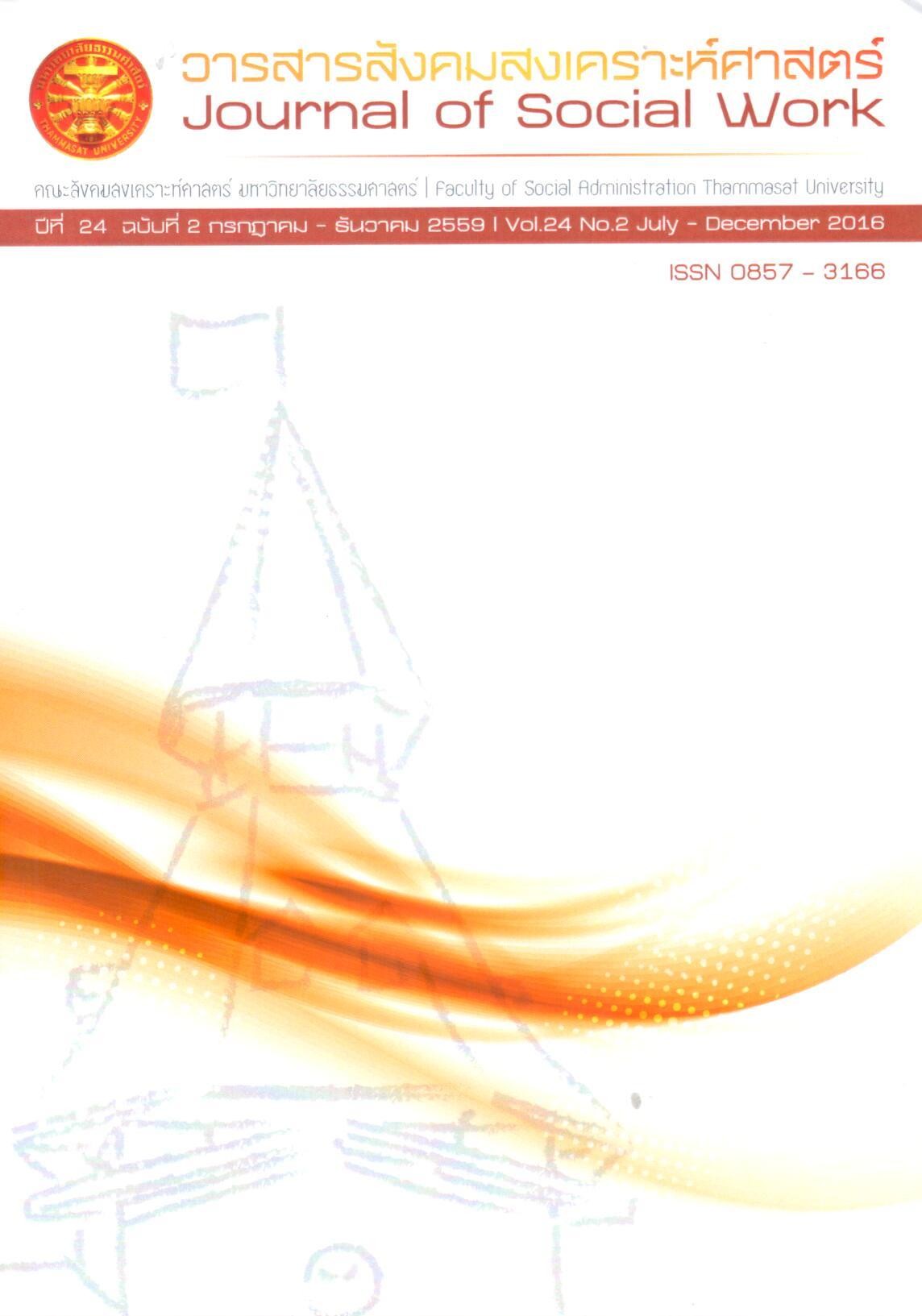Approach of the Thai Labour Movement towards 21st Century Globalization
Keywords:
Globalization, Labor Movement, 21st CenturyAbstract
Globalization has transformed the world into one ‘global society’ in which there are great advances in communication technology and free movement of capital, labour and thought. Neoliberalism believes in market forces and individualism, both of which have exerted significant influence over Thailand in the 21st century. This has led to economic, social and cultural changes to which the labour movement needs to adapt at two levels. At the micro level, the labour movement must strengthen itself with morally upright and capable leaders. Organisations need effective financial and human resources management and the labour movement must be unified. It must also construct a new image while reducing conflicts, whether internal ones or conflicts with employers and the state. Workers need to develop themselves to become skilled and competent in their field, be able to use IT and create workforce innovations. At the macro level, there is a need for a political party representing the workforce. The party should lobby for legislation and have both a domestic and international role without restrictions imposed by the state. It should be accepted by the general population, organize regular activities and be successful in its aims. Such actions will be a powerful response to the current situation and will enable the labour movement to operate meaningfully in this 21st century environment of change and globalization.
References
ระพีพรรณ คำหอม. (2554). สวัสดิการสังคมกับสังคมไทย. พิมพ์ครั้งที่ 3. กรุงเทพฯ: บริษัท จรัลสนิทวงศ์การพิมพ์ จำกัด.
ศักดินา ฉัตรกุล ณ อยุธยา. (2556). เรื่องแรงงานสัมพันธ์และขบวนการแรงงานในประเทศไทย. (อัดสำเนา)
ศูนย์ช่วยเหลือและจัดการวิกฤติแรงงาน. (2554). 11 เรื่องเด่น คนทำงานกับวิกฤติเศรษฐกิจแฮมเบอร์เกอร์. พิมพ์ครั้งที่ 1. กรุงเทพฯ : บริษัทไปรโตไทป์ จำกัด
ส่วนวิเทศสัมพันธ์ สำนักงานปลัดกระทรวงแรงงานและสวัสดิการสังคม. สู่เศรษฐกิจโลกาภิวัตน์ที่ยั่งยืนในเชิงสังคม. ใน อนุสารแรงงาน. กรุงเทพฯ : 2554
Kurian, George Thomas, The encyclopedia of political science. Washington : CQ Press, 2011.
World Bank, Globalization, Growth, and Poverty. New York: Oxford University Press, 2003
ประชาไท. (เสาร์ที่ 12 ธันวาคม 2558). ส่องตัวเลขสหภาพแรงงานต้นปี 2558 มีเพียง 6 แสนคนจากผู้มีงานทำ 37 ล้าน. สืบค้น เมื่อวันที่ 14 ธันวาคม 2558, จาก http://www.prachatai.org /journal/2015/06/59895
ศักดินา ฉัตรกุล ณ อยุธยา. (กุมภาพันธ์ 2556). ขบวนการแรงงานไทย:ปัญหาและอุปสรรคขบวนการแรงงาน. สืบค้น เมื่อวันที่ 8 ธันวาคม 2558, จาก http://social- agenda.org /article/1369. (วันที่ 1 ตุลาคม 2556). กระแสโลกาภิวัตน์กับขบวนการแรงงาน. สืบค้น เมื่อวันที่ 8 ธันวาคม 2558, จาก http://popthaiin 2025.blogspot.com/2013/10/blog-post_7161.html
สำนักงานบริหารแรงงานไปต่างประเทศ. (2559). สถิติการเดินทาง. สืบค้นวันที่ 12 พฤษภาคม 2559, http://www.overseas.doe.go.th/statistic.php
สำนักงานราชบัณฑิตยสภา. Globalisa(za)tion-โลกาภิวัตน์. สืบค้น เมื่อวันที่ 24 เมษายน 2559, http://www.royin.go.th
วิกิพีเดีย สารานุกรมเสรี. (2559). ชาตินิยม. สืบค้นเมื่อวันที่ 27 เมษายน 2559, จากhttp://th.wikipedia.org/wiki/ชาตินิยม
วิกิพีเดีย สารานุกรมเสรี. (2559). outsource. สืบค้นเมื่อวันที่ 27 เมษายน 2559, จากhttp://en.wikipedia.org/wiki/outsource
วิกิพีเดีย สารานุกรมเสรี. (2559). subcontract. สืบค้นเมื่อวันที่ 27 เมษายน 2559, จากhttp://en.wikipedia.org/wiki/subcontract
Ok nation blog. (วันที่ 24 กันยายน 2552). เครื่องมือทางการจัดการ : Outsourcing. สืบค้น เมื่อวันที่ 24 เมษายน 2559, http://www.Okmation.net/blog/ananbo
SIAM INTELLIGENCE. (25 พฤศจิกายน 2554). แรงงานราคาถูก วิกฤตและโอกาสในศตวรรษที่ 21. สืบค้น เมื่อวันที่ 14 ธันวาคม 2558, จาก http://www. siamintelligence.com/labour-crisis/
Downloads
Published
How to Cite
Issue
Section
License
The manuscripts published in the Social Work Journal is the copyright of the Social Work Journal, Thammasat University
Any article or opinion appeared in the Social Work Journal will solely be under the responsibility of the author The Faculty of Social Administration, Thammasat University and the editors do not need to reach in agreement or hold any responsibility.



